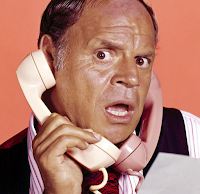** It's a light one this week but the links contain a lot to think about.
** The Worst Moment of This Writer’s Life Became One of the Best Things You’ll Read All Year (The Vulture)-- David Marchese talks to Tom Hart about his new book Rosalie Lightning, a book that I've been waiting a long time to read. I've read a couple of the chapter's of this book as Hart's released them as minicomics the past few years and this book should be devastating. The book is about his and his wife's having to rebuild their lives after the sudden death of their young daughter. Hart's cartooning is raw and painful to read but there is something beautiful in the way that he shares both the love and the pain of his daughter.
So, even in the first couple days after she died, when I was capable of having a thought, I felt that, to get some sort of understanding, I’d have to put everything into book form. But, you know, you quickly realize that you never “understand” what happened. Instead of understanding, or something as trite as “moving past it,” the best you can do, I think, is integrate the facts of what happened into your life — stop trying to deny it, or stop suffering from it.
** Priority shipping was a waste (Alec Reads Comics)-- I really enjoy it when Alec Berry writes about comics. He's got a critical voice that was all the rage for a bit around in the late aughts when there was a degree of performance to criticism but Alec has a good eye for story and art . His latest piece takes a look at Howard Chaykin's Batman: Dark Allegiances that came out during Chaykin's Hollywood years.
In essence, that’s Chaykin’s approach to Batman. Take a brooding totem away from its emotional ghetto, and supply an opportunity for it to laugh at itself. When Chaykin says the book is about “Hitler in a Hawaiian shirt” in Howard Chaykin: Conversations he’s not wrong. It is. But it’s not without the stoic Welch image at the front, placing the character in context as the pop culture product Batman is. A character under the cover of a plated cowl, protected from the world his eyes see.
** Interview: Seth (Comics Alternative)-- Derek Royal has an interview with Seth and there's so much to talk about this interview. First, it's the kind that you don't see much anymore as it's not purely a promotional interview. Seth isn't hawking his newest project or anything. It's not quite the career retrospective-type interview that The Comics Journal used to do but it may be the closest thing we'll get to that for a while.
The other great things is just Seth. I honestly don't remember reading a good and thorough interview with him. I want to say that maybe there was one around It's A Good Life If You Don't Weaken or when Clyde's Fans started up but the man is just fascinating. His aesthetic is the life he lives. Has there been another cartoonist who's style isn't just on his drawing board but also in his life?
The fiction that came around the shop was a natural outgrowth of my own sensibilities when working on such a project. I like to elaborate and make up small fake histories. So much of my work is about this sort of thing. I’m awfully attracted to the commonplace elements (and the uncommonplace too) of that old twentieth-century world. I read a lot in that vein, and I have a pretty deep mental reservoir of information about these sort of things, and so I naturally like to come up with little back stories. Inevitably, I wanted to add elements to the shop that blurred fact and fiction. That’s why, on the wall, we have a framed newspaper that details the shop’s twenty-five-year history. Of course, that newspaper went up on the wall when the shop was only one day old. The shop has a whimsical element to it as well. An imaginary King that rules over it and chooses his barbers mysteriously. This has kind of fey, sickly sweet quality, I realize. Perhaps a bit sickening in preciousness. I have nothing to offer in my defense, except I think it’s cute. I like cute.










